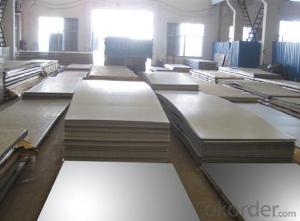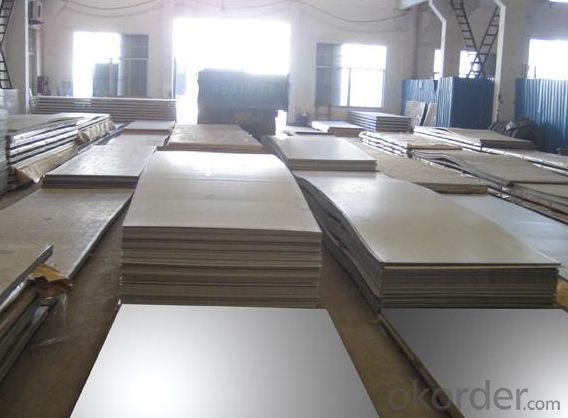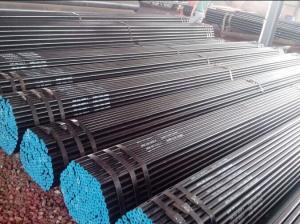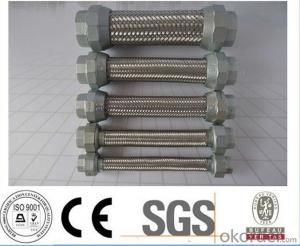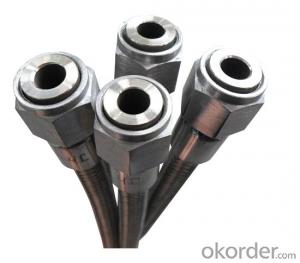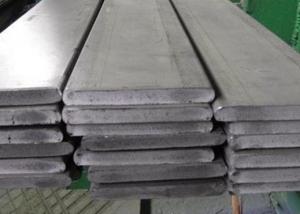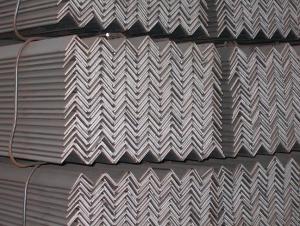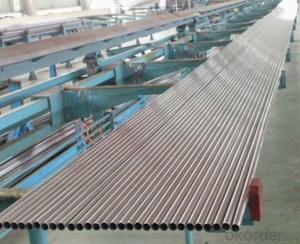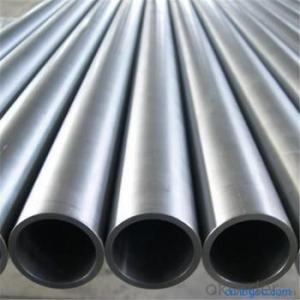0.15-80mm Thickness SGS Certification and 300 Series
- Loading Port:
- Tianjin
- Payment Terms:
- TT OR LC
- Min Order Qty:
- 100 kg
- Supply Capability:
- 1000 kg/month
OKorder Service Pledge
Quality Product, Order Online Tracking, Timely Delivery
OKorder Financial Service
Credit Rating, Credit Services, Credit Purchasing
You Might Also Like

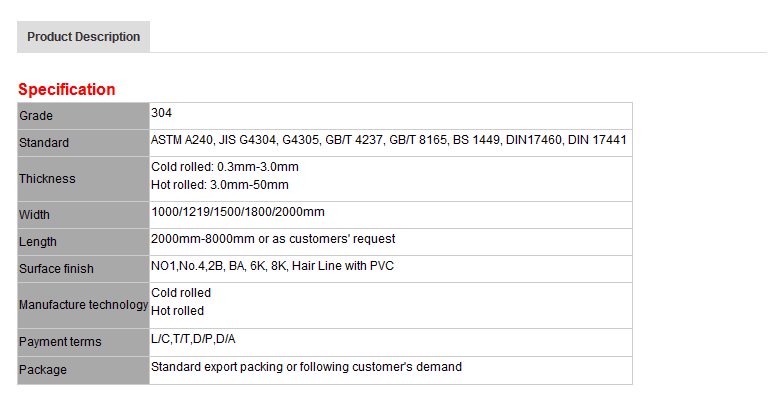

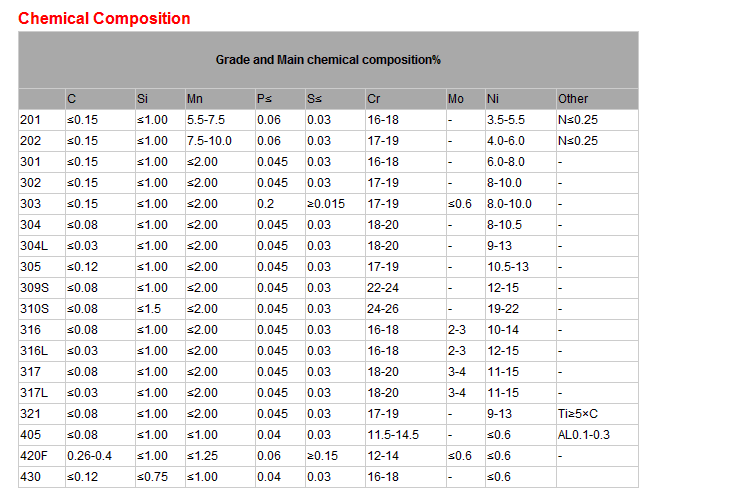

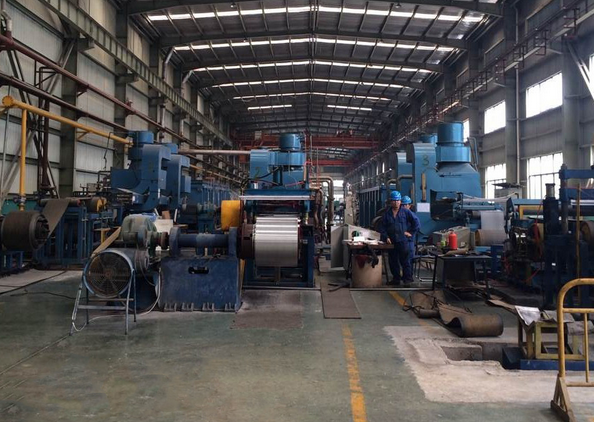
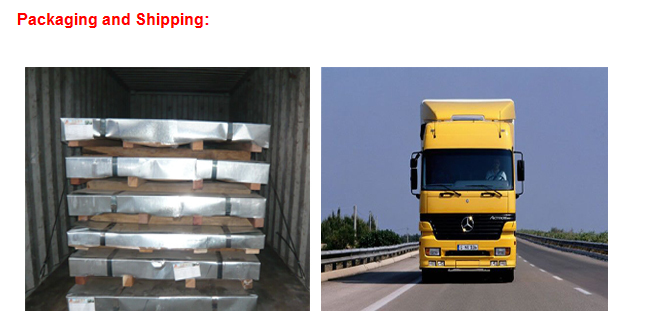
- Q:Are stainless steel pipes suitable for oil refinery applications?
- Stainless steel pipes are indeed suitable for oil refinery applications as they possess outstanding resistance to corrosion. This exceptional property renders them an excellent choice for the transportation and processing of oil and various petroleum products. The corrosion-resistant nature of stainless steel prevents any deterioration of the pipes resulting from exposure to the corrosive substances and chemicals commonly encountered in oil refineries. Moreover, these pipes can withstand high temperatures and pressure, which ensures the safety and efficiency of oil refinery operations. In addition to these advantages, stainless steel is renowned for its durability and longevity, thereby minimizing the need for frequent maintenance and replacement. In conclusion, the utilization of stainless steel pipes in oil refinery applications provides a dependable and cost-effective solution.
- Q:What is the tensile strength of stainless steel pipes?
- The tensile strength of stainless steel pipes can vary based on the specific grade and composition of the steel. However, stainless steel is renowned for its high tensile strength, making it a popular choice for various applications that demand sturdy and long-lasting pipes. On average, stainless steel pipes possess a tensile strength that falls within the range of 500 to 1500 megapascals (MPa). Thanks to this remarkable tensile strength, stainless steel pipes can endure substantial pressure and stress, rendering them suitable for utilization in industries like construction, oil and gas, chemical processing, and automotive manufacturing. It is worth noting that the precise tensile strength of stainless steel pipes can be influenced by factors such as the manufacturing process, heat treatment, and any additional alloying elements present in the steel. Consequently, referring to the specific technical specifications or standards for the particular grade of stainless steel pipes is crucial in order to ascertain their exact tensile strength.
- Q:What are the different types of stainless steel pipe hangers?
- There are several different types of stainless steel pipe hangers, including clevis hangers, u-bolt hangers, split ring hangers, and riser clamps.
- Q:What are the common sizes of stainless steel pipes used in construction?
- The common sizes of stainless steel pipes used in construction typically range from 1/2 inch to 12 inches in diameter.
- Q:What is the difference between 304Cb and 316Cb stainless steel pipes?
- The chemical composition and properties differentiate 304Cb and 316Cb stainless steel pipes. 304Cb stainless steel is an austenitic alloy with chromium, nickel, and a small amount of niobium. The niobium improves its resistance to intergranular corrosion, making it suitable for applications in food processing, chemical and petrochemical industries, and architecture. On the contrary, 316Cb stainless steel, also an austenitic alloy, contains chromium, nickel, and a higher proportion of molybdenum. The increased molybdenum content provides superior resistance to corrosion and pitting in chloride environments. Therefore, 316Cb stainless steel pipes are ideal for marine environments or coastal areas where exposure to saltwater or corrosive substances is common. In conclusion, both 304Cb and 316Cb stainless steel pipes are excellent options for various applications. However, 316Cb stainless steel offers enhanced corrosion resistance in chloride environments due to its higher molybdenum content. The choice between the two depends on the specific requirements and surroundings of the application.
- Q:Can stainless steel pipes be used for dairy processing equipment?
- Yes, stainless steel pipes can be used for dairy processing equipment. Stainless steel is a commonly used material in the food and dairy industry due to its hygienic properties, resistance to corrosion, and ease of cleaning. It is specifically designed to meet the high standards of cleanliness and sanitation required in dairy processing, making it a suitable choice for various applications in this industry.
- Q:What are the common applications of stainless steel pipes in the construction industry?
- Due to their numerous advantageous properties, stainless steel pipes find extensive use in the construction industry. The construction industry commonly employs stainless steel pipes for various purposes, including: 1. Plumbing systems: The corrosion resistance, durability, and ability to withstand high pressure and temperature make stainless steel pipes highly sought-after in plumbing systems. These pipes are ideal for conveying water, gas, and other fluids in residential, commercial, and industrial buildings. 2. Structural support: Stainless steel pipes are widely utilized for providing support and stability in structural applications. They are frequently used in constructing load-bearing structures such as columns, beams, and other elements due to their exceptional strength and resistance to deformation. 3. Handrails and guardrails: The aesthetic appeal, low maintenance requirements, and durability of stainless steel pipes make them a popular choice for constructing handrails and guardrails. These pipes not only provide safety and security but also enhance the overall appearance of the building. 4. Ventilation and exhaust systems: In the construction of ventilation and exhaust systems, stainless steel pipes are often preferred. Their corrosion resistance and ability to withstand high temperatures make them suitable for transporting air and gases in commercial kitchens, factories, and other industrial facilities. 5. Balustrades and staircases: Stainless steel pipes are commonly employed in the construction of balustrades and staircases due to their strength, durability, and contemporary appearance. These pipes offer both functionality and aesthetic appeal, enhancing the overall design of the building. 6. Conduits for electrical wiring: Stainless steel pipes are utilized as conduits for electrical wiring in buildings. Their non-combustible nature and resistance to corrosion ensure a safe environment for routing electrical cables and wires. 7. Fire sprinkler systems: Fire sprinkler systems often incorporate stainless steel pipes due to their ability to withstand high temperatures and resist corrosion. These pipes ensure the effective and reliable distribution of water for fire suppression during emergencies. 8. Solar panel installations: Stainless steel pipes play a crucial role in the construction of solar panel installations. They are used to transport water or heat transfer fluids for solar thermal systems, contributing to the sustainability of the building. In conclusion, stainless steel pipes exhibit versatility and offer significant benefits in the construction industry. Their corrosion resistance, durability, strength, and aesthetic appeal make them an ideal choice for various applications, ensuring the longevity and functionality of buildings.
- Q:Can stainless steel pipes be used for geothermal systems?
- Indeed, geothermal systems can utilize stainless steel pipes. With its exceptional durability and resistance to corrosion, stainless steel proves itself as an ideal material for enduring the harsh conditions of such systems. Geothermal systems facilitate the transfer of heat from the earth's core to the surface, often necessitating the circulation of hot water or steam. In this regard, stainless steel pipes skillfully manage the elevated temperatures and pressure associated with geothermal systems, evading any corrosion or degradation over time. Furthermore, stainless steel possesses resistance against scaling and mineral accumulation, which are frequent occurrences in geothermal systems. As a result, employing stainless steel pipes guarantees the durability and efficiency of geothermal systems.
- Q:Can stainless steel pipes be used in the oil and gas industry?
- Yes, stainless steel pipes can be used in the oil and gas industry. Stainless steel is highly resistant to corrosion and can withstand high pressure and extreme temperature conditions, making it a suitable material for transporting oil and gas. It also has excellent durability and reliability, making it a preferred choice for various applications in the industry.
- Q:How do stainless steel pipes compare to brass pipes?
- Stainless steel pipes are generally more durable, corrosion-resistant, and have higher heat resistance compared to brass pipes. Additionally, stainless steel pipes are often more cost-effective in the long run due to their longevity and low maintenance requirements. Brass pipes, on the other hand, are known for their excellent conductivity and aesthetic appeal. Ultimately, the choice between stainless steel and brass pipes depends on the specific needs and preferences of the application.
1. Manufacturer Overview |
|
|---|---|
| Location | |
| Year Established | |
| Annual Output Value | |
| Main Markets | |
| Company Certifications | |
2. Manufacturer Certificates |
|
|---|---|
| a) Certification Name | |
| Range | |
| Reference | |
| Validity Period | |
3. Manufacturer Capability |
|
|---|---|
| a)Trade Capacity | |
| Nearest Port | |
| Export Percentage | |
| No.of Employees in Trade Department | |
| Language Spoken: | |
| b)Factory Information | |
| Factory Size: | |
| No. of Production Lines | |
| Contract Manufacturing | |
| Product Price Range | |
Send your message to us
0.15-80mm Thickness SGS Certification and 300 Series
- Loading Port:
- Tianjin
- Payment Terms:
- TT OR LC
- Min Order Qty:
- 100 kg
- Supply Capability:
- 1000 kg/month
OKorder Service Pledge
Quality Product, Order Online Tracking, Timely Delivery
OKorder Financial Service
Credit Rating, Credit Services, Credit Purchasing
Similar products
New products
Hot products
Hot Searches
Related keywords
